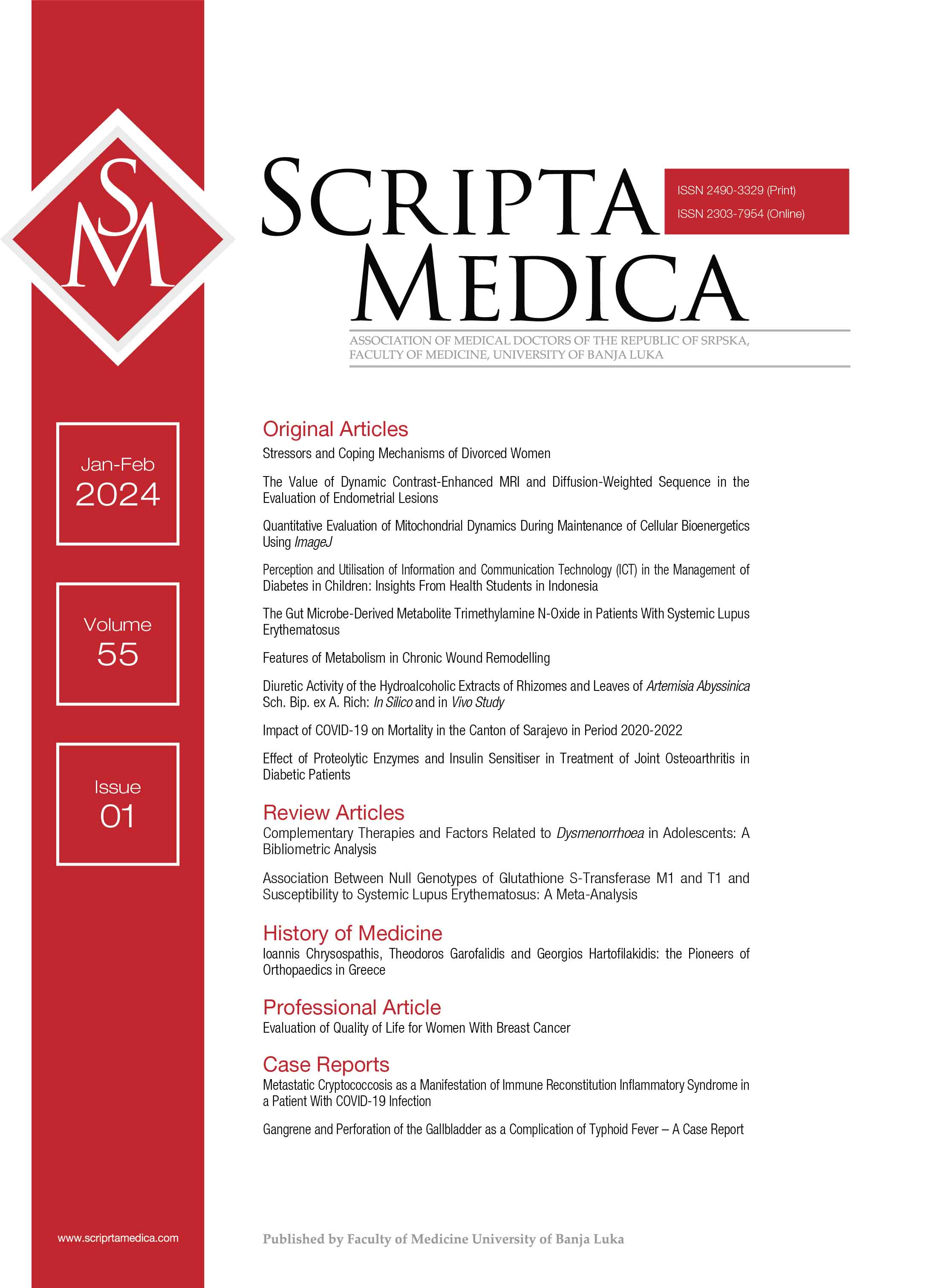Metastatic Cryptococcosis as a Manifestation of Immune Reconstitution Inflammatory Syndrome in a Patient With COVID-19 Infection
na
Sažetak
Disseminated cryptococcosis is an infrequent fungal illness primarily observed in immunocompromised individuals, particularly among those with human immunodeficiency virus (HIV). In this report, a case where the initiation of antiretroviral therapy revealed a previously hidden Cryptococcus infection in an HIV-positive male who also had COVID-19 is presented. A 30-year-old male with a medical history of HIV sought medical attention at the Emergency Department due to the presence of a widespread, non-itchy skin rash along with severe difficulty breathing. Diagnosis of unmasking immune reconstitution inflammatory syndrome (IRIS) associated with disseminated cryptococcosis, all while testing positive for COVID-19 was made based on clinical presentation and performed analyses. COVID-19 management guidelines were strictly adhered to and treatment included the administration of steroids, amphotericin B and fluconazole. Additionally, empirical coverage for Pneumocystis carinii pneumonia (PCP) was initiated. Regrettably, the patient's clinical condition deteriorated in the following days, ultimately resulting in his passing. The ongoing pandemic has understandably prioritised the diagnosis of COVID-19 by healthcare providers, sometimes overshadowing the exploration of alternative diagnoses. It is crucial to maintain a heightened clinical suspicion for opportunistic infections, especially among immunocompromised individuals, particularly those with HIV.
Reference
Bosamiya SS. The immune reconstitution inflammatory syndrome. Indian J Dermatol. 2011 Sep-Oct;56(5):476-9. doi: 10.4103/0019-5154.87114.
Crothers K, Huang L. Pulmonary complications of immune reconstitution inflammatory syndromes in HIV-infected patients. Respirology. 2009 May;14(4):486-94. doi: 10.1111/j.1440-1843.2008.01468.x.
Müller M, Wandel S, Colebunders R, Attia S, Furrer H, Egger M; IeDEA Southern and Central Africa. Immune reconstitution inflammatory syndrome in patients starting antiretroviral therapy for HIV infection: a systematic review and meta-analysis. Lancet Infect Dis. 2010 Apr;10(4):251-61. doi: 10.1016/S1473-3099(10)70026-8.
Passarelli VC, Perosa AH, de Souza Luna LK, Conte DD, Nascimento OA, Ota-Arakaki J, et al. Detected SARS-CoV-2 in ascitic fluid followed by cryptococcemia: a case report. SN Compr Clin Med. 2020;2(11):2414-8. doi: 10.1007/s42399-020-00574-9.
Khatib MY, Ahmed AA, Shaat SB, Mohamed AS, Nashwan AJ. Cryptococcemia in a patient with COVID-19: A case report. Clin Case Rep. 2020 Dec 19;9(2):853-5. doi: 10.1002/ccr3.3668.
Ghanem H, Sivasubramanian G. Cryptococcus neoformans meningoencephalitis in an immunocompetent patient after COVID-19 infection. Case Rep Infect Dis. 2021 Jun 4;2021:5597473. doi: 10.1155/2021/5597473.
- Authors retain copyright and grant the journal right of first publication with the work simultaneously licensed under a Creative Commons Attribution License that allows others to share the work with an acknowledgement of the work's authorship and initial publication in this journal.
- Authors are able to enter into separate, additional contractual arrangements for the non-exclusive distribution of the journal's published version of the work (e.g., post it to an institutional repository or publish it in a book), with an acknowledgement of its initial publication in this journal.
- Authors are permitted and encouraged to post their work online (e.g., in institutional repositories or on their website) prior to and during the submission process, as it can lead to productive exchanges, as well as earlier and greater citation of published work (See The Effect of Open Access).

